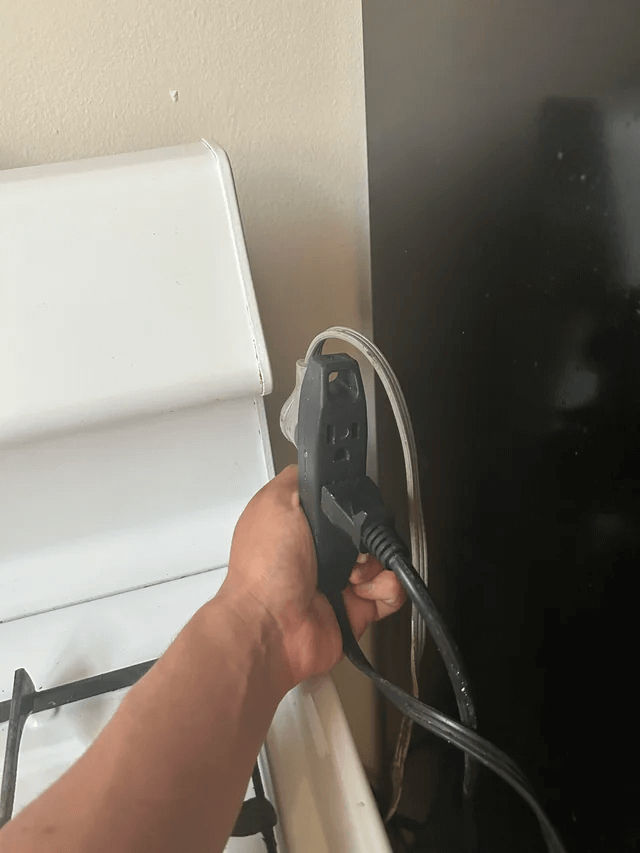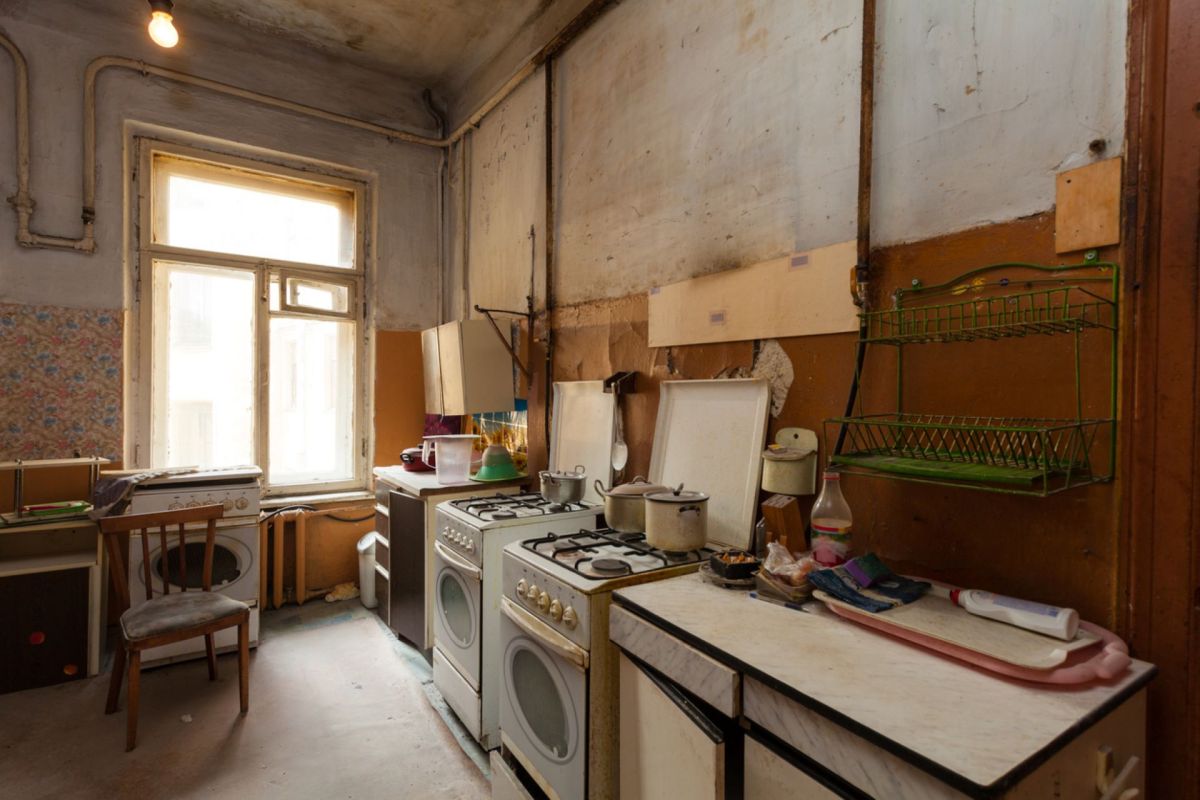In June, a Redditor posted on r/electrical for help after they found a questionable electrical situation in their rental's kitchen.
Different kinds of electrical outlets are used for different purposes, as Electronics Hub explains. Typically, kitchen equipment like an oven or refrigerator needs an outlet with three slots; the third slot "grounds" the appliance, directing stray electrical current away in case of a dangerous problem with the wiring. These appliances may also need a heavy-duty outlet designed to deliver more electricity.


Using a two-pronged "ungrounded" outlet for large appliances is dangerous, according to Electronics Hub. It's not designed for the amount of power these appliances need to draw, and it has no safety features in case of an electrical short.
That's why this Redditor said they were concerned when they found their refrigerator and stove plugged into a single "cheater" adapter that connected the three-pronged plugs to a single two-pronged outlet.
"Fridge and stove hooked up to this adapter and extension cord," they said, sharing photos of the terrifying setup. "Landlord refuses to change receptacle and says this is ok … Is it safe, though?"
According to commenters, the arrangement was definitely not safe. "That extension seems very thin for a fridge and a stove. Like a fire waiting to happen," said one user.
Another commenter said, "This is outright wrong! There is no ground if there is any problem where line voltage comes in contact with the stove or fridge outer surfaces."
In other words, the situation could have literally shocking consequences.
The original poster isn't the first Redditor to encounter safety issues in a rented kitchen. Unfortunately, many landlords hope to save money by cutting corners with appliances. Not only does this create hazards for residents and cost them money, but it can even do environmental harm, such as generating air pollution through a gas leak.
Some commenters felt that the original poster should report the situation. "Does your municipality require rental certification?" asked one user. "Seems unlikely that an inspector would accept this as okay. This definitely does not comply with any current building or electrical codes."
Join our free newsletter for easy tips to save more, waste less, and help yourself while helping the planet.









